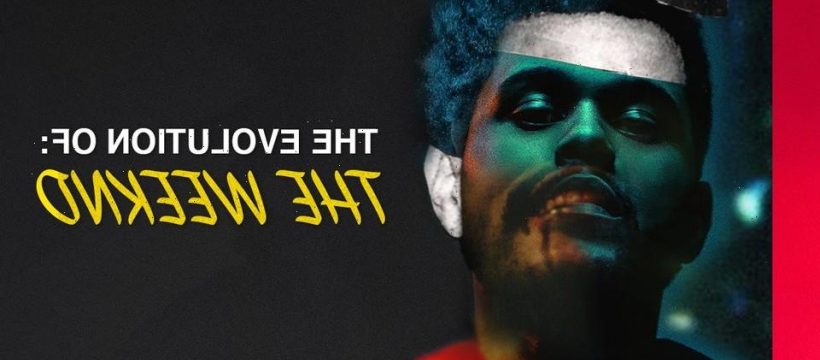While it’s only been about two years since the release of The Weeknd’s last album After Hours, it seems that time has passed quickly for the artist. Teasing the artwork of his latest album, Dawn FM, the artist has transformed himself into a much older man, signaling a new evolution. Newly released, the LP bills itself as “a new sonic universe from the mind of The Weeknd” and to match, the artist dons wrinkles, grey hair and a pointedly solemn expression on the album’s cover.
View this post on Instagram
A post shared by The Weeknd (@theweeknd)
A mastermind of reinvention, The Weeknd cultivates a new persona for each of his albums – from the gritty mixtapes that made their way through Toronto’s underground to the arrival of After Hours as the gloomy pop soundtrack that defined 2020. As he ushers in his next era, HYPEBEAST charted the evolution of The Weeknd’s different identities over the past decade.
Trilogy (2012)
A compilation of three individual mixtapes — House of Balloons, Thursday and Echoes of Silence — and three additional singles, Trilogy marks Abel Tesfaye’s official debut as The Weeknd. The dark narrative of the tapes is reflected in the series’ artwork, which takes on a demo aesthetic and utilizes Polaroids that blur the face of the 22-year-old creator.
Kiss Land (2013)
Inspired by a tour stop in Tokyo, Kiss Land manifests a mysterious and futuristic world heavily inspired by sci-fi and Japanese culture. Before touring for Trilogy, The Weeknd had been on a plane and described his experience of being in Japan as feeling like “a different planet.” Incorporating retro typeface, anime imagery and neon colors, the album sees the artist look inward to explore feelings of fear and uncertainty in the face of newfound fame.
Beauty Behind the Madness (2015)
Critics have described Beauty Behind the Madness as marking the artist’s approach to a more mainstream sound in juxtaposition to his previous bodies of work. The comparably simple cover art features black and white collages, alongside 35mm portraits of The Weeknd shot at his new home base in Los Angeles.
Starboy (2016)
The Weeknd is known for his love of classic films, an affinity encapsulated in a twelve-minute video that previewed a few songs off of Starboy. Two films by Danish auteur Nicolas Winding Refn, Drive and The Neon Demon, were credited with inspiring scenes of The Weeknd speeding through Los Angeles and walking alone through the crowd at a blue-lit nightclub.
Shortly before dropping the album, he also chopped off his signature locs. “The vision wasn’t there anymore,” he explained to Zane Lowe in a Beats 1 interview. “It was there and then just like the music, it was getting really sad. It was the greatest feeling of all time.”
After Hours (2020)
The Weeknd shocked fans when he used facial prosthetics to give the illusion that he had undergone plastic surgery while rolling out After Hours. Serving as a commentary on the absurdity of celebrity culture in Hollywood, the LP that followed his faux augmentations told the story of a man who had descended into madness in his pursuit of success and fame. He wrapped up the era with an epic performance for the Super Bowl LV halftime show in February last year.
View this post on Instagram
A post shared by The Weeknd (@theweeknd)
Dawn FM (2022)
Led by the synth-heavy single “Take My Breath,” Dawn FM brings together an eclectic mix of collaborators. Jim Carrey provides voiceovers for the project — the final song is called “Phantom Regret by Jim” — and also includes Quincy Jones, Tyler, the Creator, Lil Wayne and Oneohtrix Point Never.
It’s still not clear how The Weeknd’s new elderly persona will play out, though it’s possible that he’s hinting at an enhanced degree of sophistication or growth. Meanwhile, Carrey, who listened to the album for the first time on Monday night, described it as “deep and elegant.”
View this post on Instagram
A post shared by theweekndprt ? | Bruno (@theweekndprt)
The Weeknd’s Dawn FM is out on streaming services today.
Source: Read Full Article
